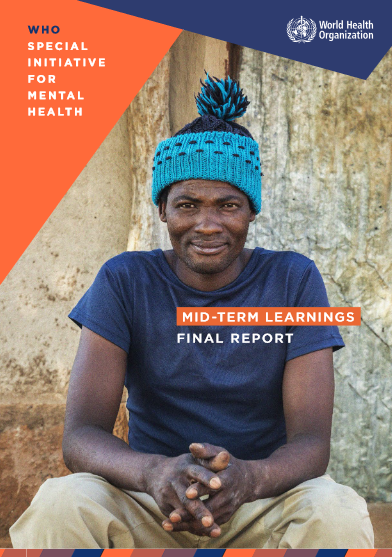
WHO Special Initiative for Mental Health
Mental, neurological and substance use disorders account for more than 10% of the global disease burden. The lost productivity resulting from depression and anxiety, two of the most common mental disorders, costs the global economy US$ 1 trillion each year. Commonly, in low- and middle- income countries, 85% of people with mental disorders receive no treatment at all for their disorder.
This is why, in 2018, the WHO Director-General, Dr Tedros Adhanom Ghebreyesus, identified mental health as an area for which action should be accelerated. The result was the establishment of the WHO Special Initiative for the Mental Health, covering the 5-year period 2019-2023.
WHO Special Initiative for Mental Health was launched in 2019, although work began following a cross-country meeting held in Geneva in January 2020 with six early adopter countries: Bangladesh, Jordan, Paraguay, the Philippines, Ukraine, and Zimbabwe. Since then, Argentina, Ghana and Nepal have become part of WHOs Special Initiative for Mental Health, which is aiming to ensure access to mental health services for 100 million more people across WHOs six regions. Each country has already undertaken an initial assessment to get a broad picture of the mental health needs, available services, opportunities and main challenges for scale up.
The strategies and strategies implementation plans developed in each country are dependent on results of the initial assessments and country priorities. However, they all include aspects of developing or improving mental health policy, and scaling up quality services in community-based and general health settings.
Countries
News
Videos
Publications


External publications

Baseline situational analysis in Bangladesh, Jordan, Paraguay, the Philippines, Ukraine, and Zimbabwe...
Mental, neurological and substance use conditions lead to tremendous suffering, yet globally access to effective care is limited. In line with the 13th...
Feature story
In 2020, One World magazine, run by the Swiss Development and Cooperation Agency (SDC), featured the "WHO Special Initiative for Mental Health" in an article called “A ticking time bomb”. The article includes stories about mental health services in three countries (Bosnia and Herzogovina, Jordan and Somalia) and describes why the Special Initiative is so timely.
Related health topics
COVID-19














